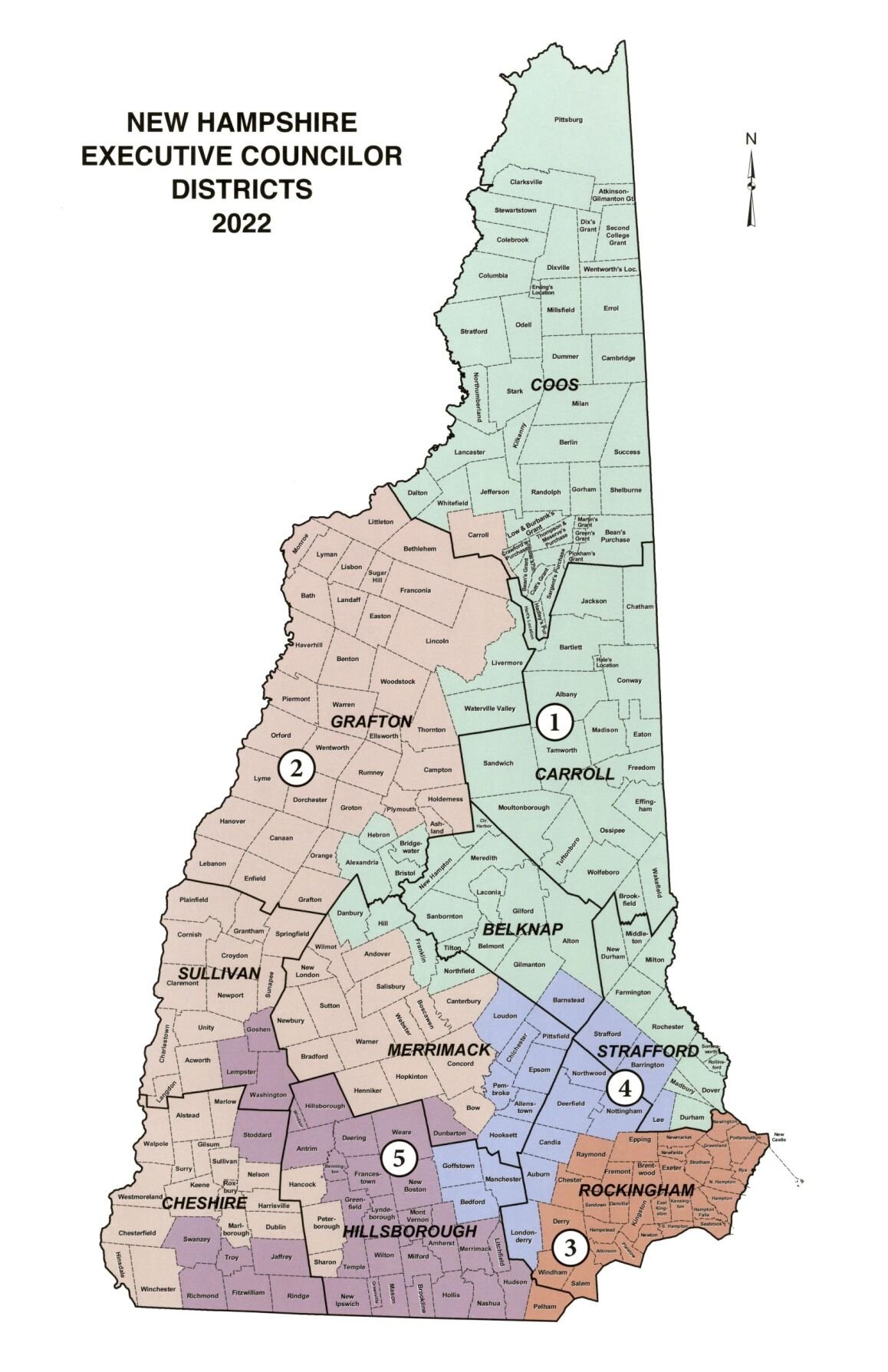New Hampshire’s Executive Council is the most powerful position in state government that most voters know almost nothing about.
The five-member elected body, the only one of its kind in the country, serves essentially as New Hampshire’s board of directors.
The council meets every two weeks to approve all government contracts of more than $10,000.
It also confirms the nominations of all judges, hundreds of political appointees and thousands of residents who serve as volunteers on state boards and commissions.
Massachusetts is the only other state with a “Governor’s Council” but it’s largely ceremonial in nature and doesn’t act as a check on the governor’s authority as New Hampshire’s does.
Gov. Chris Sununu, who is leaving state government after four terms in the corner office, served three terms on the Executive Council before first becoming governor in 2016.
“I’ll always be a cheerleader for the robust oversight of government that the council provides,” Sununu said. “They are often a governor’s eyes and ears out in their districts and bring forward ways in which the state can more effectively and efficiently deliver services to the people of New Hampshire.”
This election is the first in a presidential year to test whether Republican leaders have created council districts that will ensure a GOP majority well into the future.
From 2006 through 2020, control of the council went back and forth between Democrats and Republicans.
For the past four years, Republicans have held a 4-1 partisan advantage, with Concord lawyer Cinde Warmington the only Democrat at the table.
In 2021, the Republican-led Legislature realigned the council districts, making Warmington’s district a deeply Democratic seat while the other four became even more Republican.
In 2022, Democratic candidates for the council got more votes statewide, but the four GOP incumbents all still prevailed.
Warmington departs
Warmington is leaving the council, having run for governor but losing in the Democratic primary to former Manchester Mayor Joyce Craig.
Grafton County Treasurer and former Lebanon Mayor Karen Liot Hill is the Democratic nominee to replace Warmington in District 2, and is a heavy favorite against Plymouth Republican Kim Strathdee, who is making her fourth bid for the council.
... as does Gatsas
Former Manchester Mayor Ted Gatsas, a Republican, is retiring after three terms on the council. Looking to take his place in District 4 is former Health and Human Services Commissioner John Stephen, another Manchester Republican, who has already raised $373,000 in campaign funds, a modern record for a job that pays roughly $18,000 a year.
State Democratic Party Chair Raymond Buckley recruited Manchester School Board Vice Chairman James O’Connell to take on Stephen. O’Connell has raised a very respectable $138,000 to date.
It’s getting expensive
The cost of running for the council has gone up substantially in the past decade.
In District 3, former state Sen. Jon Morgan, D-Brentwood has raised nearly $250,000 in his bid to unseat two-term Republican Janet Stevens of Rye, who’s raised $150,000 on her own.
Another targeted race is in District 1, where Somersworth Democratic businessman Emmet Soldati tries to unseat long-term GOP incumbent Joe Kenney of Wakefield.
Soldati’s progressive contacts helped him raise $156,000 thus far, which is twice as much as Kenney, but Kenney’s tireless constituent service has always worked in his favor on Election Day.
Milford Republican David Wheeler is seeking his eighth term in District 5, a seat that since redistricting is friendlier to the GOP.
He faces a competitive challenge, however, from former state Sen. Melanie Levesque, D-Brookline.




